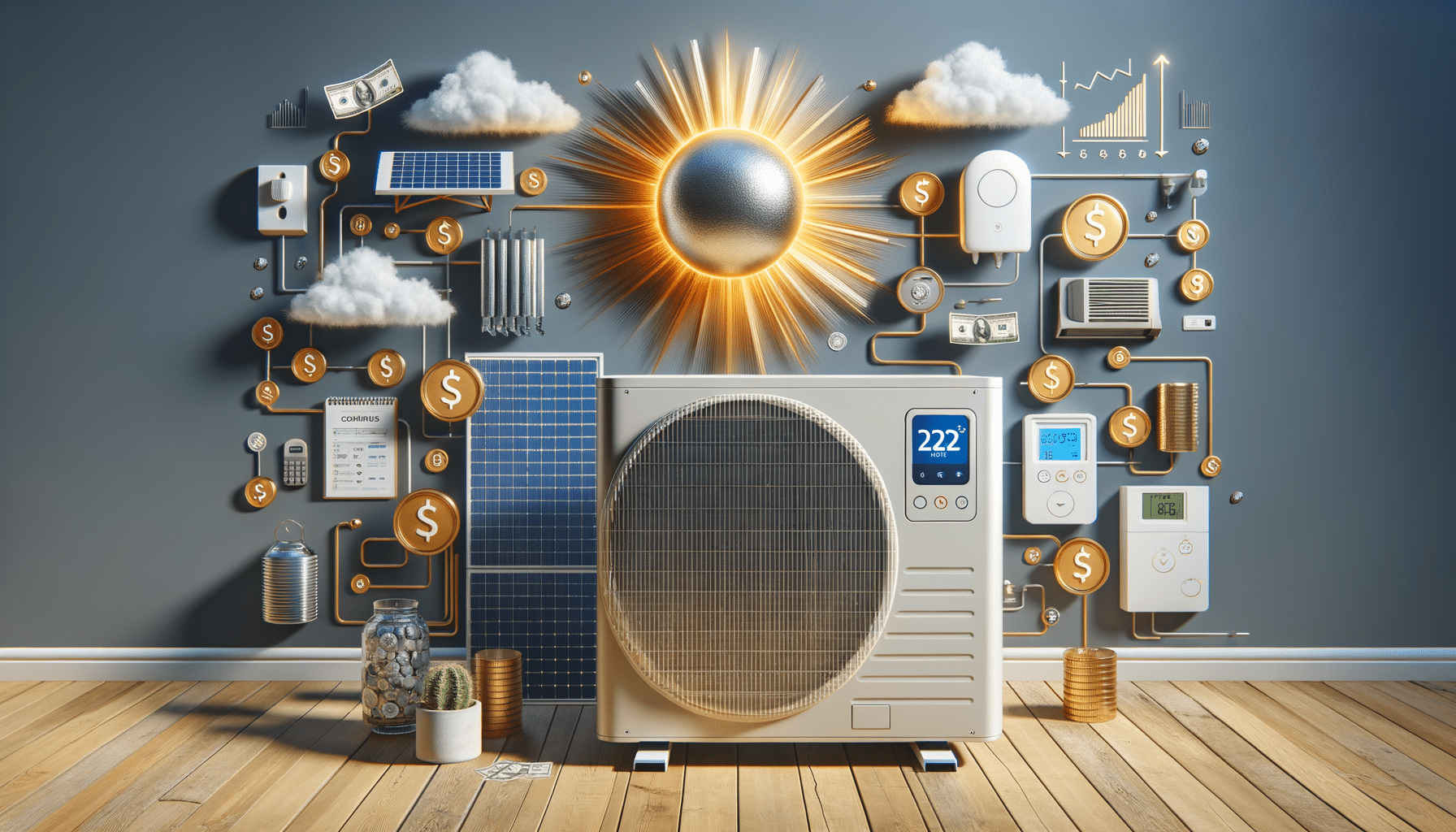
Understanding the Price of Solar Air Conditioning Systems
Introduction to Solar Air Conditioning
As global temperatures continue to rise, the demand for efficient and sustainable cooling solutions becomes increasingly critical. Solar air conditioning emerges as a promising alternative, offering the dual benefits of reducing electricity consumption and lowering carbon footprints. This technology harnesses solar energy to power air conditioning units, providing a greener way to stay cool. With the growing awareness of environmental issues, more homeowners are considering solar air conditioning systems as a viable option. However, understanding the financial implications is crucial for making an informed decision.
Factors Influencing the Cost of Solar Air Conditioning Systems
Several factors influence the price of solar air conditioning systems. The initial investment can vary significantly based on the type of system, installation complexity, and geographical location. Here are some key considerations:
- System Type: There are different types of solar air conditioning systems, including photovoltaic (PV) systems and solar thermal systems. PV systems convert sunlight into electricity to power the air conditioner, while solar thermal systems use heat from the sun to drive the cooling process.
- Installation Costs: Professional installation is essential for optimal performance and safety. Costs may vary depending on the complexity of the installation and local labor rates.
- Geographical Location: The efficiency of solar air conditioning systems is influenced by the amount of sunlight available, which can vary by region. Areas with more sunlight may see higher efficiency and lower operational costs.
- System Size: The size of the system needed depends on the area to be cooled. Larger spaces may require more extensive systems, impacting the overall cost.
Understanding these factors can help homeowners estimate the potential investment required for a solar air conditioning system and evaluate its long-term benefits.
Long-term Financial Benefits of Solar Air Conditioning
While the upfront cost of solar air conditioning systems can be a significant consideration, it’s essential to look at the long-term financial benefits. One of the primary advantages is the reduction in electricity bills. By utilizing solar energy, homeowners can significantly cut down on their reliance on grid electricity, leading to substantial savings over time. Additionally, many regions offer incentives and rebates for installing solar systems, further offsetting the initial costs.
Another financial aspect to consider is the increase in property value. Homes equipped with solar air conditioning systems are often more appealing to buyers, as they promise lower utility costs and a reduced environmental impact. This can lead to a higher resale value, making the investment more attractive.
Ultimately, while the initial investment may seem daunting, the potential for long-term savings and increased property value makes solar air conditioning a financially sound choice for many homeowners.
Environmental Impact and Sustainability
Beyond the financial benefits, solar air conditioning systems offer significant environmental advantages. By leveraging renewable energy, these systems contribute to a reduction in greenhouse gas emissions. Traditional air conditioning units rely heavily on fossil fuels, which are a major source of carbon emissions. In contrast, solar air conditioning systems use clean energy, helping to mitigate climate change.
Furthermore, adopting solar technology supports the global transition towards sustainable energy solutions. It aligns with broader efforts to reduce dependence on non-renewable resources and promotes a more sustainable lifestyle. For environmentally conscious homeowners, the opportunity to contribute positively to the environment while enjoying modern comforts is a compelling reason to consider solar air conditioning.
Conclusion: Is Solar Air Conditioning Worth the Investment?
In conclusion, solar air conditioning systems present a viable and attractive option for those looking to reduce their environmental impact and energy costs. While the initial investment may be higher compared to conventional systems, the long-term savings, environmental benefits, and potential increase in property value make it a worthwhile consideration. As technology advances and awareness of sustainable practices grows, solar air conditioning is likely to become an increasingly popular choice for homeowners worldwide. By understanding the various factors involved in the cost and benefits of these systems, homeowners can make informed decisions that align with their financial goals and environmental values.